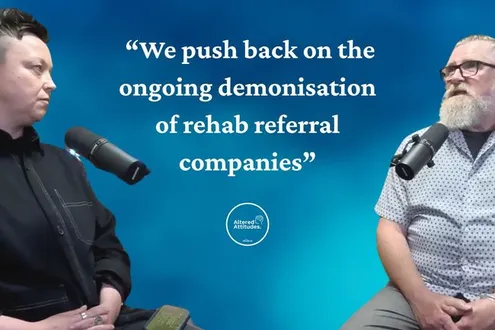If you are addicted to Fentanyl, a synthetic opioid and you stop taking it with or without support there will be a period of withdrawal.
Duration of Withdrawal: The acute withdrawal phase of fentanyl detox typically lasts for about a week or two. However, some symptoms, such as cravings and mood disturbances, can persist for a longer period. It's important to remember that everyone's experience with withdrawal is unique, and individual differences can impact the duration and intensity of symptoms.
Medical Support: Medical professionals usually within a residential rehab setting will closely monitor your progress during detox and provide support to manage withdrawal symptoms. They may administer medications to alleviate discomfort and help stabilise your physical and emotional well-being. The goal is to ensure your safety and comfort throughout the detox process as well as provide treatment for addiction that supports recovery.
Ongoing Treatment: Detoxification is just the beginning of the recovery process. Following detox, it is crucial to continue with comprehensive addiction treatment, such as following a 12 step programme, individual therapy and group therapy. These programmes can help address the underlying issues contributing to addiction, develop coping strategies, and provide ongoing support for relapse prevention.
If you would like to explore what treatment is available for Fentanyl addiction as well as detox speak to a Treatment Advisor for a free assessment.

Detoxification, or detox, is necessary for individuals who have become physically dependent.
Fentanyl abuse can have detrimental effects on both physical and mental health. Detoxification allows individuals to begin healing and repair the damage caused by substance abuse. It offers an opportunity to start rebuilding physical health, restore clarity of thought, and regain emotional stability.
Detox alone is not sufficient for long-term recovery from addiction and substance dependence. However, it provides a critical foundation for subsequent addiction treatment. Detox helps individuals overcome the physical aspects of addiction, reducing the intensity of withdrawal symptoms and cravings. This sets the stage for ongoing treatment, which is conducive to sustainable long term recovery and is likely to include individual therapy, group therapy as well as the 12 step programme potentially.

- Depression
- Confusion
- Poor balance and coordination
- Dizziness, shaking and fainting
- Nausea and vomiting
- Trouble breathing or slowed breathing
- Hallucinations, paranoia and delusions
- Itching and scratching
- Mood swings
- Sleeping all day
- Experiencing weight gain









